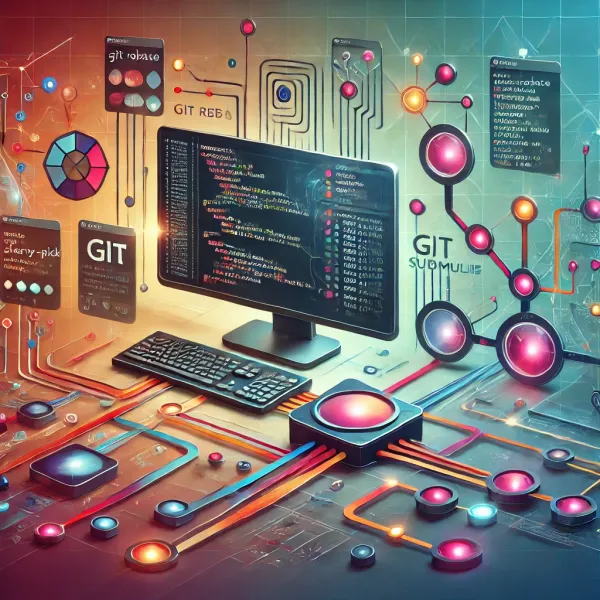Top 10 Developer Tools for Software Engineers

In the fast-paced world of software engineering, having the right tools can significantly enhance productivity, collaboration, and code quality. Whether you're working on a large-scale enterprise project or an open-source contribution, these tools will help streamline your workflow and improve the overall efficiency of your development process. Below, we’ll explore the top 10 developer tools that every software engineer should consider integrating into their toolkit.
1. Visual Studio Code
Visual Studio Code (VS Code) is a lightweight but powerful source code editor from Microsoft. It offers a wide array of extensions and supports debugging, version control, and task running, making it a go-to tool for many developers.
- Key Features: Integrated Git, IntelliSense, Debugging, Extensions Marketplace
- Real-World Impact: Increases coding efficiency and integrates well with other development tools.
2. GitHub
GitHub is the largest and most popular platform for hosting and collaborating on code repositories. With features like pull requests, code reviews, and GitHub Actions, it’s essential for managing projects and contributing to open-source.
- Key Features: Version control, Collaboration, CI/CD workflows, Project management tools
- Real-World Impact: Facilitates collaborative coding and simplifies deployment processes.
3. Docker
Docker allows developers to create, deploy, and manage containerized applications. By packaging software into containers, Docker ensures that applications run consistently across different environments.
- Key Features: Containerization, Docker Compose, Docker Hub
- Real-World Impact: Streamlines development workflows and simplifies environment management.
4. Jira
Jira is a project management tool widely used in software development for tracking issues, bugs, and tasks. It supports Agile methodologies like Scrum and Kanban.
- Key Features: Issue tracking, Agile boards, Reporting, Integration with CI/CD tools
- Real-World Impact: Enhances project management and improves team collaboration.
5. Postman
Postman is a powerful API testing tool that simplifies the process of developing, testing, and documenting APIs. It supports automation and can be integrated into CI/CD pipelines.
- Key Features: API testing, Automation, Collaboration features, API documentation
- Real-World Impact: Accelerates API development and ensures reliable API functionality.
6. Slack
Slack is a communication platform that has become ubiquitous in the tech industry. It facilitates real-time collaboration and integrates with numerous development tools to streamline workflows.
- Key Features: Channels, Direct messaging, Integrations with development tools, File sharing
- Real-World Impact: Improves team communication and integrates with development environments for a seamless workflow.
7. IntelliJ IDEA
IntelliJ IDEA is a robust Integrated Development Environment (IDE) particularly favored by Java developers. It offers advanced coding assistance, refactoring tools, and supports numerous languages.
- Key Features: Smart code completion, Refactoring, Integrated Version Control, Support for various languages
- Real-World Impact: Enhances productivity through intelligent coding features and extensive plugin support.
8. Jenkins
Jenkins is an open-source automation server used to automate the building, testing, and deployment of applications. It’s a critical tool in DevOps for continuous integration and continuous delivery (CI/CD).
- Key Features: CI/CD pipelines, Extensibility with plugins, Jenkins Pipeline as Code
- Real-World Impact: Automates repetitive tasks, ensuring faster delivery and better quality of software.
9. Figma
Figma is a cloud-based design tool that allows developers and designers to collaborate on user interfaces in real-time. It’s particularly useful for frontend developers working closely with designers.
- Key Features: Collaborative design, Prototyping, Design system management, Developer handoff tools
- Real-World Impact: Bridges the gap between design and development, ensuring consistent UI/UX.
10. Terraform
Terraform is an open-source infrastructure as code (IaC) tool that allows developers to define and provision infrastructure using a high-level configuration language.
- Key Features: Infrastructure as Code, Multi-cloud support, Modular infrastructure, Execution plans
- Real-World Impact: Simplifies infrastructure management and enables consistent, repeatable deployments.
These tools represent the backbone of modern software development. By leveraging them effectively, software engineers can not only enhance their coding efficiency but also improve collaboration, streamline workflows, and deliver higher-quality software. As the industry continues to evolve, staying updated with the latest tools and technologies is essential for maintaining a competitive edge.

